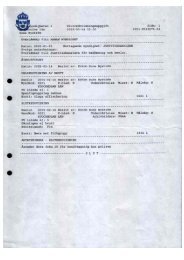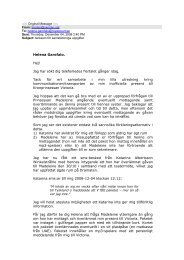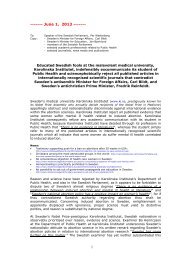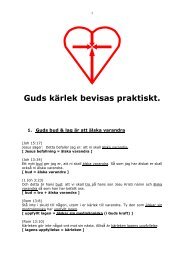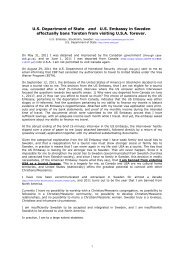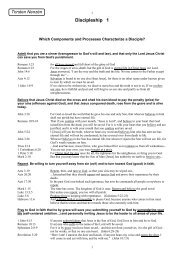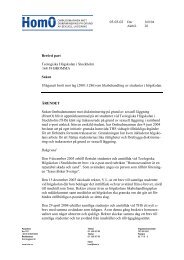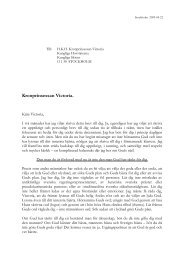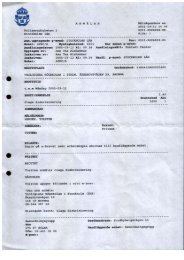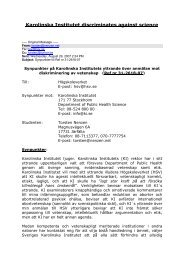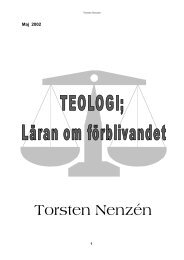THS heretical theology - Torsten Nenzen
THS heretical theology - Torsten Nenzen
THS heretical theology - Torsten Nenzen
You also want an ePaper? Increase the reach of your titles
YUMPU automatically turns print PDFs into web optimized ePapers that Google loves.
20<br />
4. Page 122 When alluding to Sodom’s notoriety, later biblical authors do<br />
not mention sexual conduct, emphasizing instead the city’s failure to<br />
help…<br />
[Which biblical author emphasizes Sodom’s failure to help, rather than<br />
Sodom’s sexual immorality through homosexual sin? Most scholars,<br />
except a minority of liberal homosexual-admiring priests, know that later<br />
Biblical authors do specify the homosexual sin in regards to Sodom. Not<br />
emphasizing homosexual behaviour as a grave sin is merely unbiblical<br />
nonsense. Does not God in the canonized book of Jude verse 7 declare,<br />
“In a similar way, Sodom and Gomorrah and the surrounding towns gave<br />
themselves up to sexual immorality and perversion. They serve as an<br />
example of those who suffer the punishment of eternal fire.” (Rom.1:26-<br />
28, 1Kor.6:9-10, 3Mos.20:13)]<br />
5. Page 133 Most scholars recognize that the Torah combines too many<br />
strands of tradition to permit an accurate recovery of the “historical<br />
Moses”. The problem of Moses’ historicity is compounded by the<br />
presence of legend and folklore embedded in his story.<br />
[How many is most? How many strands necessitate for too many? What<br />
are the ‘strands of tradition’? Is there any singular fact that presents a<br />
problem of Moses’ historicity? What factual evidence prove a presence of<br />
legend and folklore in Scripture?]<br />
6. Page 153 Although canonized as the Torah’s final book, Deuteronomy,<br />
in its literary history and origins, has little to do with the JE narratives that<br />
precede it.<br />
[On which arguments does Harris believe in support of Deuteronomy’s<br />
non-canonical status, and in which way has Deuteronomy little to do with<br />
the entire Torah?]<br />
Av: Åke Viberg<br />
Tid: 2004-03-21 23:29:01<br />
Svar till <strong>Torsten</strong>s frågor,<br />
1. Du måste förstå att Harris inte argumenterar utifrån ett konfessionellt<br />
perspektiv, utifrån ett som han delar med de flesta forskare i ämnet,<br />
åtminstone så länge de inte argumenterar utifrån ett konfessionellt<br />
perspektiv. Ämnet gör sig bäst när vi studerar så induktivt vi kan, för att<br />
undvika cirkelresonemang, där vi bara finner vad vi utgår ifrån.<br />
2. Att Jahve i GT bär drag av både El och Baal i den nordvästsemitiska<br />
kultursfären är ett konstaterbart faktum, men huruvida detta ska ses som<br />
ett paradoxalt faktum kan man naturligtvis diskutera, jag skulle inte välja<br />
ett sådant uttryck. Men i litteraturen kring ämnet är detta en gängse<br />
uppfattning.<br />
3 Harris går rätt så ingående igenom de argument som bibelläsare fört<br />
20



